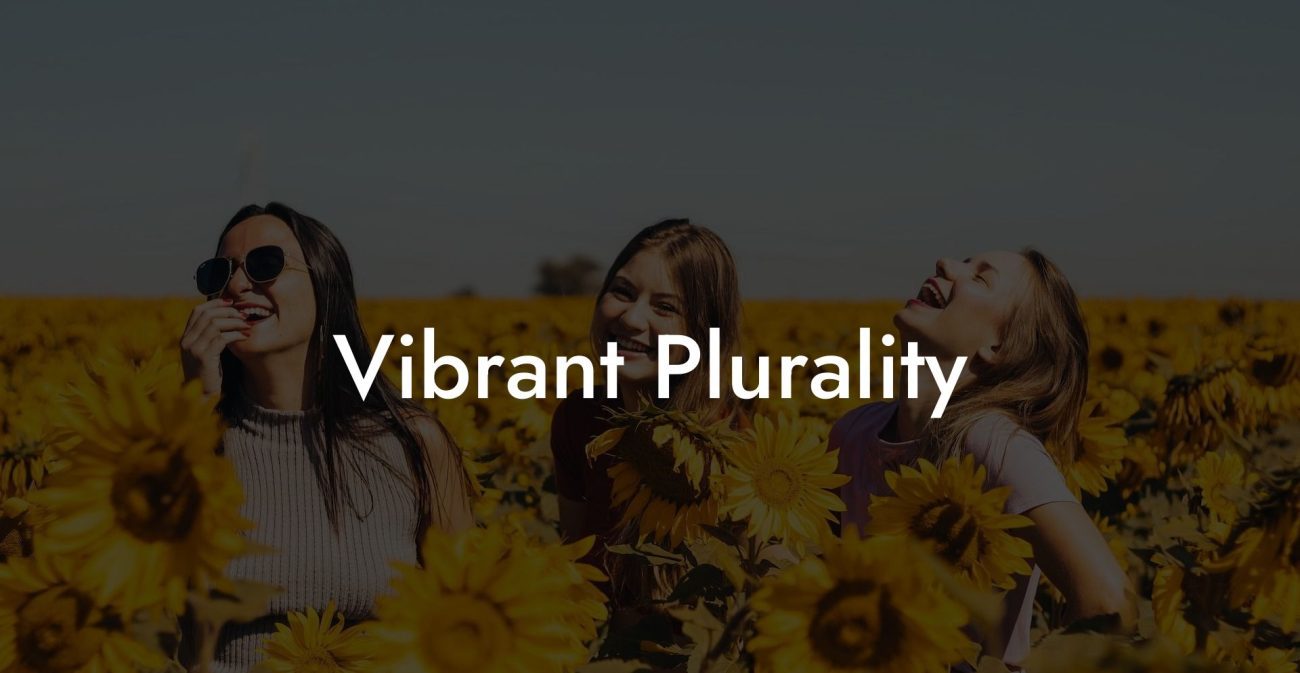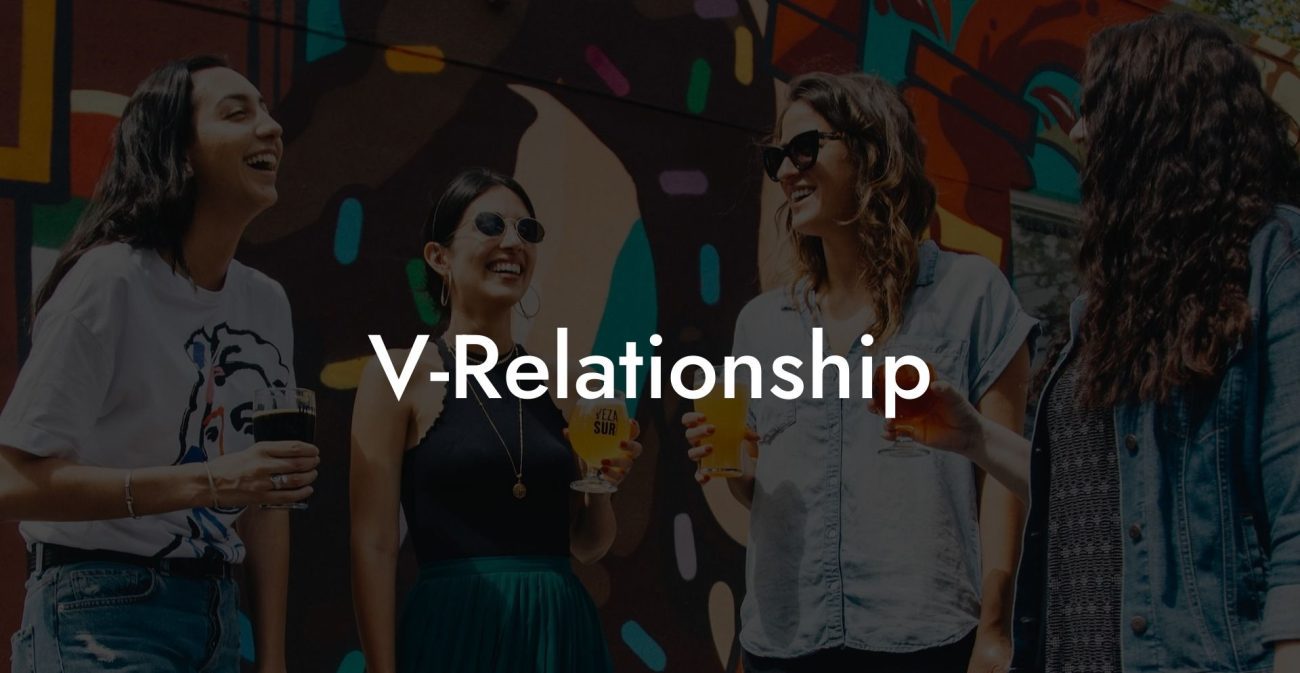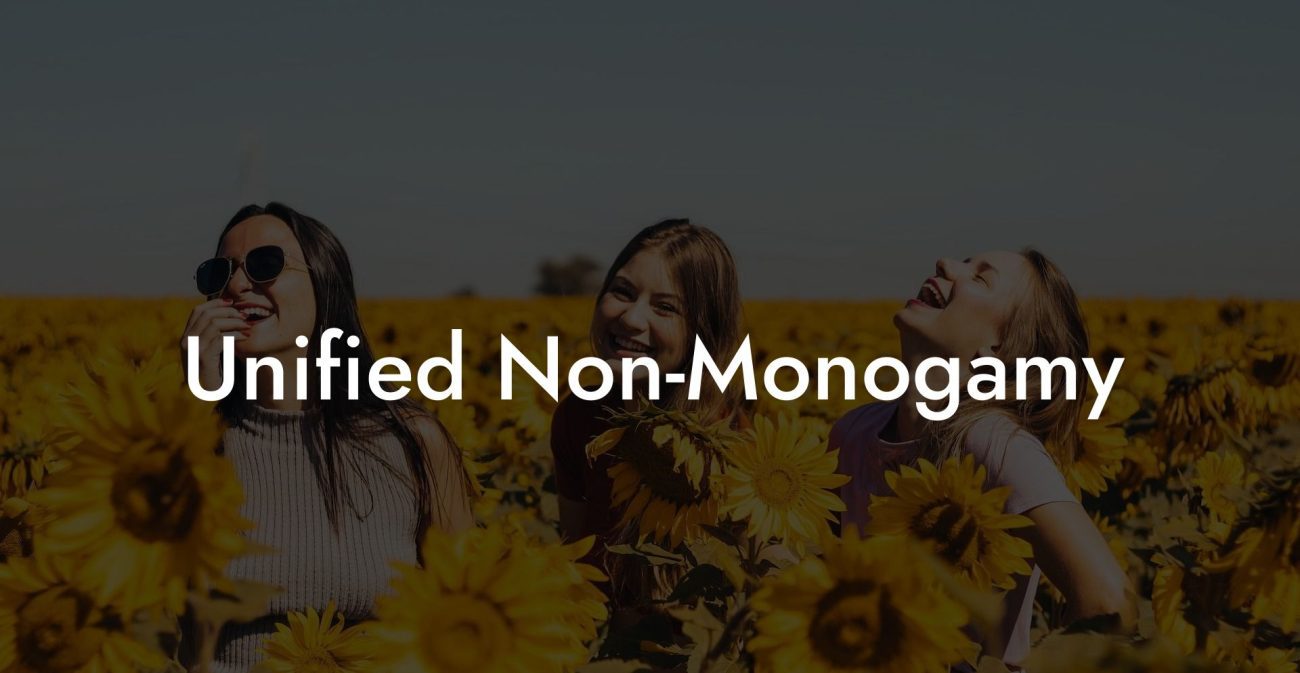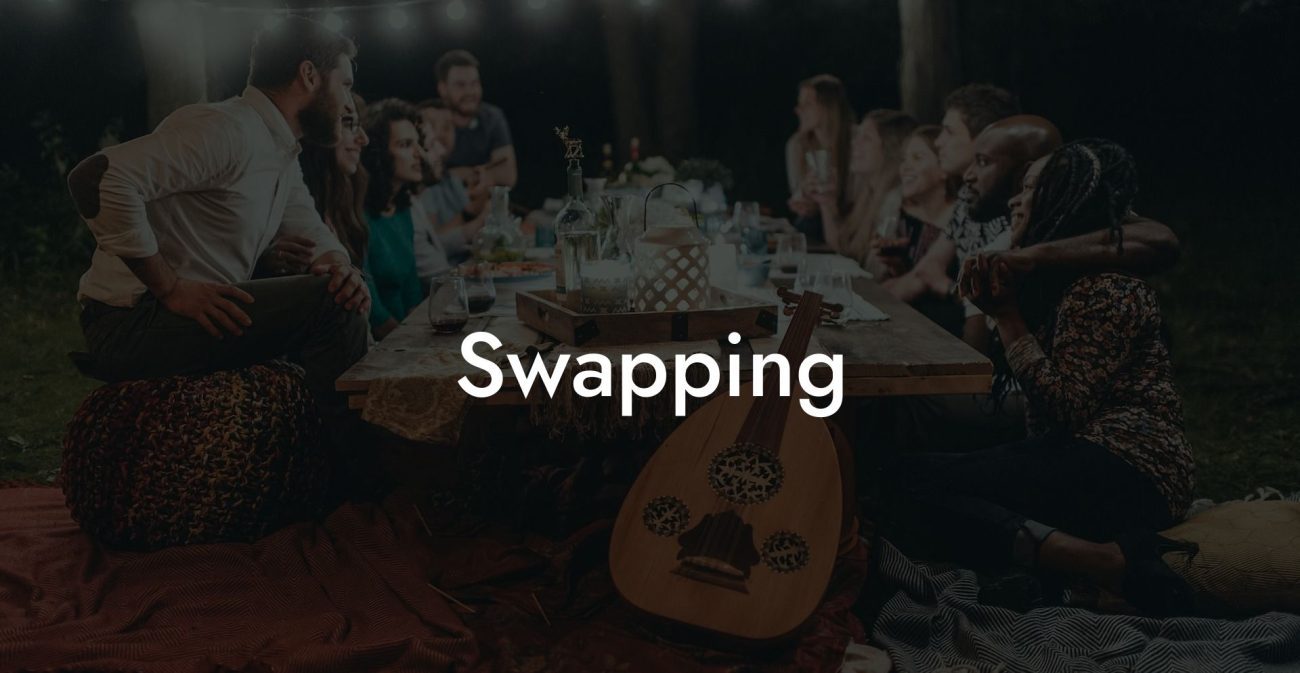Multi-Love
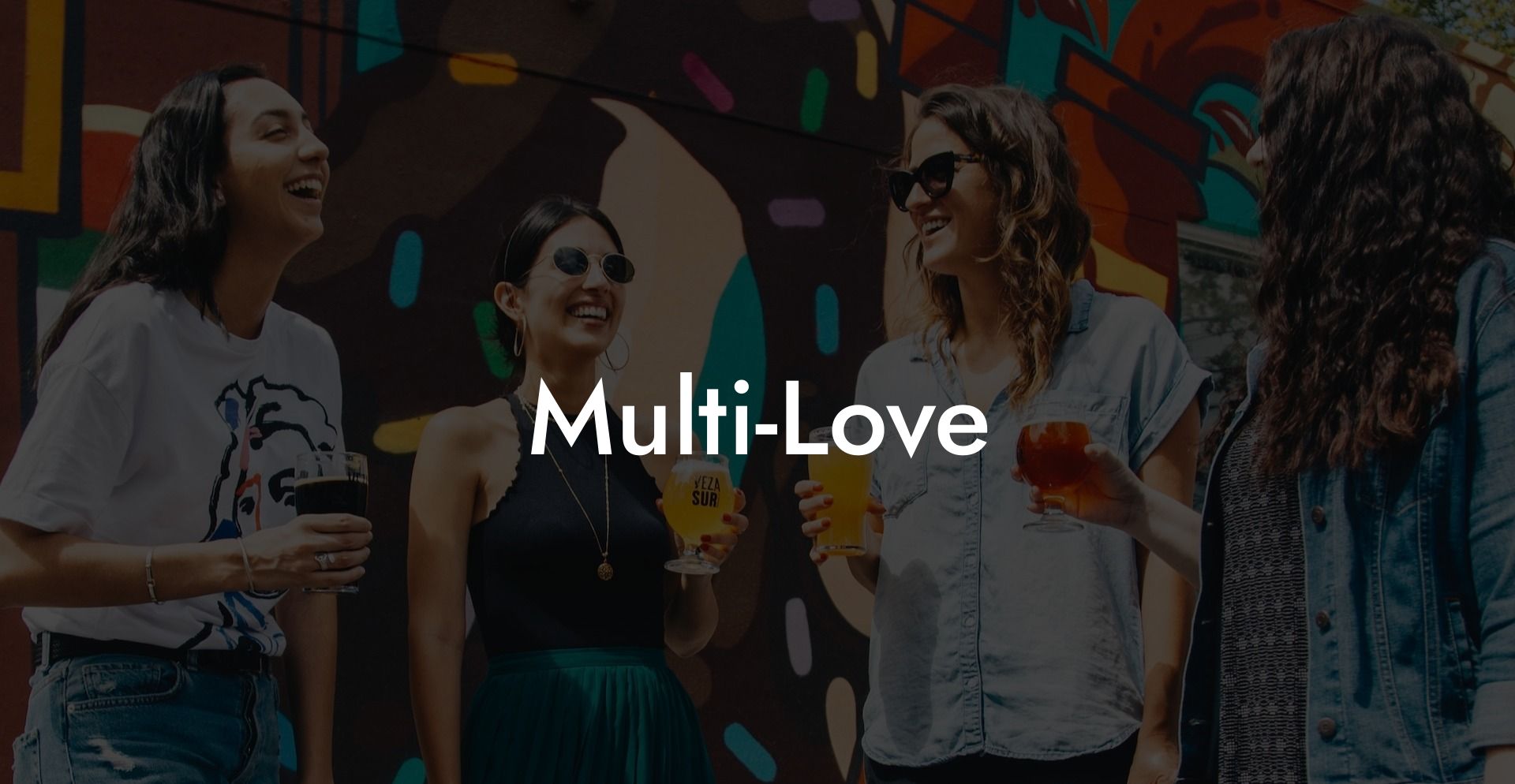
Imagine a love that comes in countless shades and forms—a kaleidoscope of relationships that together create an ever-changing, vibrant picture of connection. Welcome to Multi-Love, a revolutionary concept in ethical non monogamy that celebrates the idea that your heart can embrace many loves at once. Here, love is not confined to a single, exclusive narrative; instead, it blossoms in multiple directions, each relationship adding its own unique color, texture, and depth to your emotional landscape. Whether you’re nurturing a deep, soulful bond with one partner, sharing playful sparks with another, or even blending elements of both, Multi-Love invites you to honor the complexity and abundance of your capacity for connection.
Have you ever wondered if monogamy is just a stupid little experiment? Open relationships, polyamory, relationship anarchy...find out which relationship dynamic suits you best with our one minute relationship test. See if you are just conforming to "societal norms". Reveal your truth >>
Quick Links to Useful Sections
- The Ethical Non Monogamy Term: Multi-Love
- What Is Multi-Love?
- Core Principles of Multi-Love
- Historical and Cultural Perspectives on Multi-Love
- From Singular Love Myths to a Kaleidoscope of Connection
- Cultural Shifts in Modern Relationship Models
- Everyday Dynamics of Multi-Love
- Living a Life of Emotional Abundance
- Renegotiating Boundaries and Expectations
- Benefits of Embracing Multi-Love
- Richer, More Layered Emotional Connections
- Personal Growth and Empowerment
- Improved Communication and Conflict Resolution
- Collective Resilience and Expanded Support Networks
- Challenges of Multi-Love
- Managing Emotional Complexity
- Balancing Individual Needs with Collective Dynamics
- Adapting to Continuous Change
- Navigating External Judgment
- Frequently Asked Questions (FAQ)
- Resources and Community Support: Your Next Steps
The Ethical Non Monogamy Term: Multi-Love
What Is Multi-Love?
Multi-Love is a framework within ethical non monogamy that recognizes and celebrates the possibility of experiencing various forms of love simultaneously. Rather than subscribing to a singular model of romantic or sexual attachment, Multi-Love encourages you to see every relationship as a distinct yet interconnected piece of your larger emotional puzzle. Each partnership contributes its own unique qualities—be it passion, support, intellectual stimulation, or spiritual connection—to create a composite picture of who you are and how you love.
In practice, Multi-Love means that you are free to engage with multiple partners in ways that suit your individual needs and desires. It’s not about dividing your love into limited portions; it’s about expanding your capacity for connection and understanding that every relationship can coexist without diminishing the value of any single bond.
Core Principles of Multi-Love
- Emotional Abundance: Recognize that your heart has an unlimited capacity for love, and that each relationship contributes to your overall emotional richness.
- Diverse Expression: Embrace the idea that every relationship is unique—each love affair can be passionate, tender, intellectual, or spiritual, and all are valid forms of connection.
- Fluid Boundaries: Understand that your needs and expectations may change over time, and be willing to adapt your relationship agreements accordingly.
- Open Communication: Foster honest, continuous dialogue with all partners to ensure that everyone’s desires, limits, and feelings are clearly understood and respected.
- Mutual Empowerment: Celebrate the growth and success of each relationship, knowing that supporting one bond does not diminish the strength of another.
- Integration Without Dilution: While each relationship contributes to the overall tapestry of your love life, no single connection should overshadow or undermine another. Every piece is essential to the full picture.
Historical and Cultural Perspectives on Multi-Love
From Singular Love Myths to a Kaleidoscope of Connection
For much of history, dominant cultural narratives promoted the ideal of singular, exclusive love—often framed as the ultimate measure of romantic fulfillment. Monogamous traditions, reinforced by religious, legal, and societal structures, typically limited the expression of love to one primary partner. This narrow perspective not only constrained emotional expression but also marginalized those whose experiences of love did not fit into the traditional mold.
As the world began to shift during the sexual revolution, feminist movements, and the rise of alternative relationship models, people started to challenge these restrictive views. Early advocates of ethical non monogamy recognized that human beings are capable of loving in multiple ways simultaneously. They argued that the heart is inherently expansive and that each relationship, no matter how varied, can contribute to a fuller, richer experience of life. This paradigm shift gave birth to the concept of Multi-Love—a framework that honors the diversity and complexity of human connection.
Cultural Shifts in Modern Relationship Models
In our interconnected digital era, where social media and online communities have redefined the way we communicate and relate, the idea of Multi-Love resonates strongly with a new generation. Millennials and Gen-Z, in particular, reject the notion of love as a scarce resource, instead embracing a model that is fluid, inclusive, and boundless. The increased visibility of ethical non monogamy, along with progressive relationship podcasts, blogs, and forums, has paved the way for a broader acceptance of Multi-Love.
Today, modern narratives celebrate that love can be a mosaic of diverse experiences. Rather than being confined by traditional expectations, individuals are encouraged to explore multiple relationships that add to their overall emotional wellbeing. Multi-Love has become a rallying call for those who believe in expanding their capacity for connection and redefining what it means to love authentically.
Everyday Dynamics of Multi-Love
Living a Life of Emotional Abundance
Practicing Multi-Love in everyday life means approaching your relationships with an open heart and a willingness to embrace the full range of human emotions. It involves a commitment to regular self-reflection, continuous communication, and the flexibility to adapt as your needs evolve.
- Daily Reflections: Set aside time each day for journaling or meditation to connect with your emotional state and assess the quality of your relationships.
- Regular Check-Ins: Schedule periodic discussions with each partner to talk about your evolving needs, celebrate successes, and adjust boundaries as necessary. These check-ins act as the pulse of your emotional network.
- Creative Expression: Use art, music, or writing to express the unique colors of your emotional experiences. Creative practices can help you visualize and appreciate the diversity of your love life.
- Shared Experiences: Engage in group activities or one-on-one outings that reinforce the bonds between you and your partners. These moments of connection enrich your overall emotional tapestry.
Renegotiating Boundaries and Expectations
With multiple relationships, it’s important to regularly revisit and renegotiate your boundaries. As your needs and desires change, so should your agreements, ensuring that each relationship remains healthy and fulfilling.
- Adaptive Negotiation: Hold periodic meetings with your partners to discuss and adjust boundaries, ensuring that every connection reflects your current emotional state.
- Feedback Loops: Encourage open feedback from all parties, creating a space where each person can share what is working and what needs to evolve.
- Living Agreements: Treat your relationship agreements as living documents that grow and change with you, rather than as fixed contracts.
Benefits of Embracing Multi-Love
Richer, More Layered Emotional Connections
Embracing Multi-Love allows you to build an emotionally diverse network where every relationship adds its own unique value. This layered approach leads to a more resilient and fulfilling love life.
- Layered Intimacy: Each connection contributes a different shade to your emotional palette, creating a complex and multifaceted experience of love.
- Enhanced Empathy: Engaging with various forms of love deepens your understanding of both your own emotions and those of your partners, fostering a strong sense of empathy.
Personal Growth and Empowerment
The journey of Multi-Love is also a journey of self-discovery. By exploring multiple relationships, you gain valuable insights into your desires, strengths, and areas for growth.
- Increased Self-Awareness: Regular introspection helps you identify what truly fulfills you and guides you in aligning your relationships with your core values.
- Empowerment Through Diversity: Recognizing the limitless nature of your capacity to love boosts your confidence and encourages you to express your authentic self without reservation.
Improved Communication and Conflict Resolution
Open, honest dialogue is the foundation of a successful Multi-Love experience. Regular communication ensures that all partners are on the same page and that any conflicts are resolved constructively.
- Proactive Conversations: Routine check-ins help address issues before they escalate, ensuring that every relationship remains strong and healthy.
- Constructive Feedback: Sharing your thoughts and feelings openly creates a culture of mutual respect and continuous improvement.
Collective Resilience and Expanded Support Networks
When you embrace Multi-Love, every relationship contributes to a collective network of support that can help you navigate life’s challenges. The diverse experiences and strengths of your partners create a robust safety net that enriches your overall well-being.
- Shared Strength: A broad network of connections provides multiple sources of support, ensuring that you never face challenges alone.
- Unified Growth: As each relationship evolves, the collective network becomes stronger, offering continuous opportunities for shared learning and mutual empowerment.
Challenges of Multi-Love
Managing Emotional Complexity
With a wide array of relationships, your emotional landscape can become complex and sometimes overwhelming. Balancing the diverse needs of each connection requires constant attention and self-reflection.
- Tip: Engage in regular self-reflection through journaling or mindfulness practices to maintain clarity about your emotions.
- Tip: Schedule routine check-ins with your partners to ensure that every relationship is nurtured and that boundaries are adjusted as needed.
Balancing Individual Needs with Collective Dynamics
Ensuring that your personal emotional needs are met while contributing to a broader network of love can be challenging. Conflicts may arise when individual desires clash with the collective vision.
- Tip: Maintain open, honest dialogue with your partners about your expectations and be willing to negotiate boundaries that honor both personal and collective needs.
- Tip: Practice empathy and active listening to ensure that every perspective is considered and respected.
Adapting to Continuous Change
Love is an ever-evolving journey, and Multi-Love requires you to adapt as your relationships and emotional needs change over time. This process of constant evolution can sometimes lead to uncertainty.
- Tip: Embrace change as a natural and enriching part of your emotional journey, and view each adjustment as an opportunity for growth.
- Tip: Regularly revisit your relationship agreements and adaptive boundaries to keep your network aligned with your current self.
Navigating External Judgment
Despite growing cultural acceptance of diverse relationship models, traditional societal norms may still challenge your embrace of Multi-Love. External criticism can sometimes lead to self-doubt or pressure to conform to conventional ideas of love.
- Tip: Surround yourself with a supportive community of like-minded individuals who celebrate diverse forms of connection.
- Tip: Focus on your personal growth and the enriching benefits of your expansive network, letting negative external opinions fade into the background.
Frequently Asked Questions (FAQ)
1. What is Multi-Love in ethical non monogamy?
Multi-Love is the concept that embraces the possibility of experiencing various forms of love simultaneously. It recognizes that every relationship, whether romantic, platonic, or sexual, adds a unique layer to your overall emotional experience.
2. How does Multi-Love differ from traditional monogamous love?
Traditional monogamous love typically focuses on a single, exclusive relationship, while Multi-Love celebrates the diversity and richness of engaging in multiple, varied connections that coexist harmoniously.
3. What are the core principles of Multi-Love?
Core principles include emotional abundance, diverse expression, fluid boundaries, open communication, mutual empowerment, inclusive connection, and adaptive boundaries.
4. How can I practice Multi-Love in my daily life?
Engage in regular self-reflection, maintain honest and open dialogue with all partners, and be willing to adapt your relationship boundaries as your emotional needs evolve.
5. What benefits does Multi-Love offer?
Benefits include deeper, layered emotional connections, increased personal growth and self-awareness, improved communication and conflict resolution, and a resilient, supportive network that enriches your overall love life.
6. What challenges might I face with Multi-Love?
Challenges can include managing the complexity of diverse emotional connections, balancing individual needs with the collective network, adapting to continuous change, and navigating external societal pressures.
7. How important is communication in practicing Multi-Love?
Communication is essential—it ensures that every connection is nurtured, that boundaries are renegotiated as needed, and that your diverse relationships remain aligned with your evolving emotional landscape.
8. Can Multi-Love be applied to both monogamous and non monogamous relationships?
Yes, the principles of Multi-Love are universal and can enhance any relationship model by fostering an expansive, diverse, and adaptive approach to love.
9. How do adaptive boundaries contribute to Multi-Love?
Adaptive boundaries allow your relationships to evolve naturally as your emotional needs change, ensuring that every connection remains healthy, consensual, and reflective of your current self.
10. What role does self-reflection play in Multi-Love?
Self-reflection is crucial—it helps you understand your evolving emotional needs, track your personal growth, and ensure that your relationships continue to align with your authentic self.
11. How do shared experiences enhance Multi-Love?
Shared experiences add depth and context to your emotional network, creating a vibrant, interconnected tapestry that enriches your overall love life.
12. Where can I find additional resources on Multi-Love and ethical non monogamy?
Additional resources include books like The Ethical Slut by Dossie Easton & Janet Hardy, podcasts such as Multiamory, and online communities like r/polyamory that explore innovative approaches to diverse, multifaceted love.
Resources and Community Support: Your Next Steps
- The Ethical Slut by Dossie Easton & Janet Hardy – A foundational text that offers deep insights into ethical non monogamy and practical strategies for embracing a diverse, enriching approach to love.
- Podcasts: Listen to Multiamory and similar shows for expert advice, personal stories, and creative ideas on practicing Multi-Love.
- Online Communities: Engage with forums like r/polyamory to share experiences, ask questions, and connect with others who celebrate a multifaceted approach to love.
- Workshops and Webinars: Attend events on relationship psychology, ethical non monogamy, and adaptive communication to deepen your understanding and expand your support network.
- Therapy and Counseling: Consider professional guidance if you need help managing complex emotions or navigating the evolving dynamics of your Multi-Love relationships.
By engaging with these resources and applying the practical strategies outlined in this guide, you can fully embrace Multi-Love as a transformative approach to connection. Celebrate every unique relationship, nurture the diverse threads that form your emotional tapestry, and let your love evolve into a rich, dynamic network of authentic, empowered intimacy.
Lost & confused by all of the terms, types and seemingly made up 3 letter acronyms?? We've got you. Check out our Ethnical Non-Monogamy Dictionary >>
Useful Interruption: Not sure which relationship vibe fits you best? Take our Relationship Test, it’ll give you the real insight into your natural relationship style. Then, dive into our binge-worthy guides (from the tried-and-true to the “wait, that’s a thing?”) and find the perfect relationship type for your life:
- Monogamy
- Open Relationships
- Ethical Non-Monogamy
- Solo Polyamory
- Non-Hierarchical Polyamory
- Hierarchical Polyamory
- Relationship Anarchy
- Swinging
Now back to the main article but yeah take the test...

